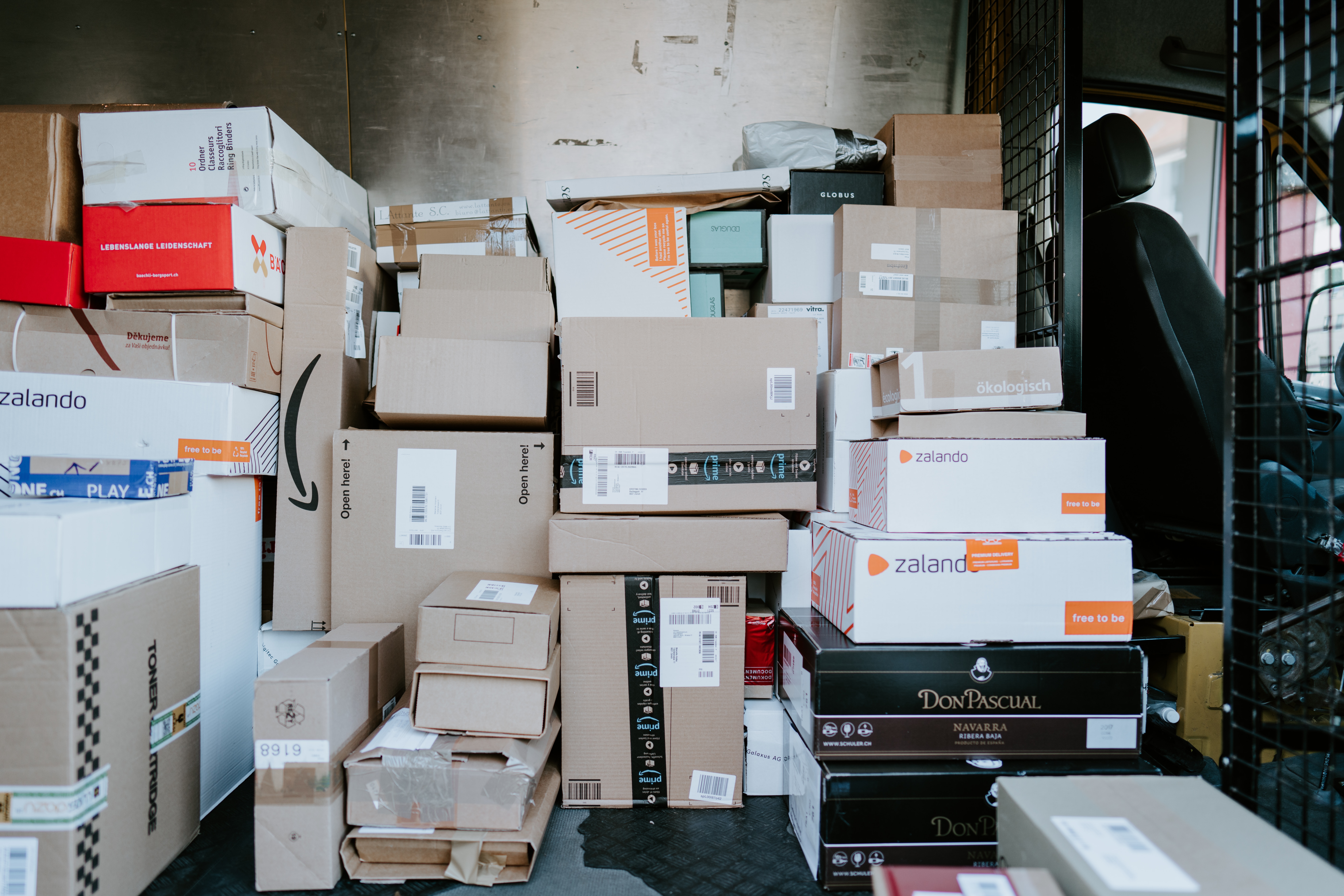The Universal Postal Union (UPU) held their first ever hackathon on 23 and 24 June 2023, aiming to unlock the value of postal data. The Digital Enabling of Circularity, Innovation, Development and Environment (DECIDE) project team from the UN Environment Programme and ETH Zurich challenged hackers to build data-driven solutions for reducing plastic pollution linked with e-commerce.
A team of data scientists, postal sector experts and environmental specialists tested approaches for identifying plastics in the data disclosed by the UPU for the Hackathon and developed a better understanding of how data must be labelled to understand plastic flows. The team then proposed an ambitious new role for the postal network in collecting plastic packaging data and made suggestions for how this data could support plastics circularity.
Plastic pollution and the postal sector
The postal sector is linked with plastic pollution through the accelerating growth of e-Commerce, which increases the availability of plastic products and drives demand for plastic packaging. The recent UNEP report, Turning off the Tap: How the world can end plastic pollution and create a circular economy, has reiterated the need for a systems change in the production and life-cycle of plastics, which could avoid costs of USD 130-200 billion by 2040, provide economic opportunity, and ultimately minimise plastic waste.

The UPU Post*Net Data and identifying plastic items
The Plastics Challenge hackers attempted to identify flows of plastic items in the postal sector using a Post*Net dataset provided by the UPU. This dataset is an anonymized and sampled extract of the Post*Net network, which is the UPU Electronic Data Interchange (EDI) network, including information on origins, destinations, dispatch, and item descriptions at the package level for customs declaration purposes. Valuable potential uses include understanding the types of plastic items being sent, the volume of plastic items, or the net plastic flows between specific origins and destinations.
First, hackers tried to disaggregate the Post*Net dataset using the World Customs Organization Harmonized System (HS) Codes to identify plastic items. This involved extracting relevant Post*Net data using the HS Codes listed by Barrowclough et al. (2020) as ‘Final manufactured plastics goods’, which provides a more complete picture by covering many plastic items listed outside of Chapter 39 (Plastics and articles thereof).
Once the data had been disaggregated to show plastic items, it became clear that the Post*Net data did not provide a full picture of postal plastics. An analysis of the two largest countries in the dataset showed a flow of plastic products totalling only 2 tonnes for the year 2022. An exploration of the data revealed that this is because only about 7% of items in the data sample contained an HS Code item description, as there was previously no requirement to share HS Codes for postal items between EU
Finding ‘hidden’ plastic packaging
The hackers in our challenge experimented with several techniques to make plastic packaging visible using the Post*Net data. Information on the type or volume of packaging is not exchanged in mandatory postal EDI, nor is there weight or size data that could be used to estimate packaging.
To solve this, hackers attempted using trade datasets from UNComtrade to identify products linked with plastic packaging by comparing imports of different HS categories with the total volume of plastic packaging disposed of in EU countries over a range of years.
However, the analysis did not show causal correlations between specific imports and packaging disposal, and it became clear to the team that the postal network must find new ways to generate and exchange data on plastic packaging. A regulatory approach could require manufacturers to report data on packaging, including net (without packaging) and gross weights of products. Then, the postal sector could consider how to integrate this information into UPU EDI messaging standards.
Proposing a customer-crowdsourced plastic packaging dataset

Incentive mechanisms to reduce plastic waste
The value of information on the flows of plastics through the postal sector is dependent on how it is used to incentivize the reduction of plastic consumption and waste. The Plastics Challenge team discussed several ways that flows of data could improve plastics circularity.
Information on plastic flows can itself nudge sustainable action, depending on the pain points of stakeholders. Consumers could identify conscientious brands that minimise plastic use or reduce personal consumption of plastics. Information can flag plastic-dependent product groups in e-commerce to regulators, while businesses can identify plastic inefficiencies in their supply chains.
Hackers also brainstormed how business models for plastic reuse or recycling could benefit from postal data. Clear data would make a ‘reverse supply chain’ approach possible, where a plastic item or packaging can be traced through postal data to retailers and original manufacturers. Data flow could enable producers being rewarded for the ‘recovery rates’ of their plastic products or in a reward system for the reuse of packaging. Data can also inform pricing models and forecast demand for recycling.
For the postal network, this could represent an opportunity for service diversification and partnerships with actors providing waste services and implementing reward schemes.
Conclusions
The Plastics Challenge hacker team at the Postal Data Hackathon had several great achievements. Firstly, they developed novel techniques for how postal data could be analysed to identify the flows of plastic items. While these techniques proved challenging when using existing postal data, this led to the second achievement of identifying the gaps in postal sector data that prevent the analysis of plastics, and that must be addressed through regulatory approaches or data collection. Finally, the team of hackers produced innovative ideas for filling gaps in data and using data to incentivise circularity.
Taken together, the hackathon showed a potential new role for the postal network: as central players in a data market with potential to improve sustainable consumption and production in e-commerce.
Hackathon Team
Challenge Holders
- Angus Hamilton - ETH Zurich
- Ana Fernandez Vergara - United Nations Environment Programme
- Nicole Weller - United Nations Environment Programme
Hackers
- Adrian Peng - Swiss Post
- Philippe Goetschman - Swiss Post
- Sammer Puran - Swiss Post
- Michael Willig - GS1 Nederland
- Teet Kirss - Eurora
Mentors
- Yaxuan Chen - UPU
- Susan Alexander - UPU










